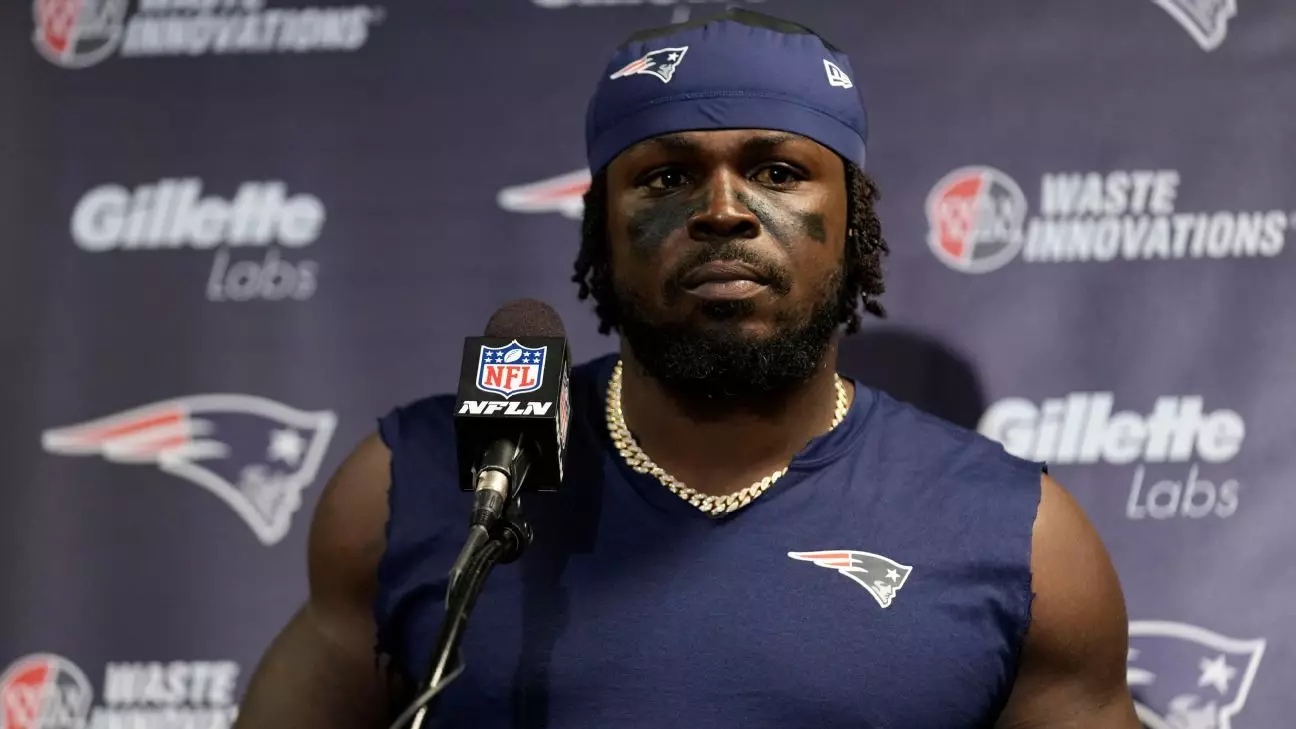The saga of New England Patriots safety Jabrill Peppers is unfolding against a dramatic backdrop of legal challenges and internal team dynamics. Peppers, who recently pleaded not guilty to serious charges of strangulation and drug possession, has been navigating the complexities of both the criminal justice system and the NFL’s regulatory frameworks. As of now, he is off the commissioner’s exempt list, indicating a crucial turn in his current situation. However, with ongoing investigations and pending legal proceedings, the implications of these events for Peppers, his team, and broader discussions around athlete conduct are significant.
The troubles for Peppers began on October 7 when police in Braintree, Massachusetts, were called to investigate an alleged domestic disturbance involving Peppers. The police report detailed grave accusations, including assault, strangulation, and possession of a controlled substance, specifically cocaine. A woman involved in the incident alleged that not only was she physically assaulted but also subjected to choking and emotional distress. The gravity of these allegations cannot be overstated, as they raise profound questions about personal responsibility and the impact of such behavior on organizations like the NFL and their players.
In the midst of these allegations, the legal proceedings are also evolving. At a recent pretrial hearing, Peppers’ attorney revealed that a substantial settlement demand of $10.5 million was made by the plaintiff, which he categorized as indicative of the underlying dynamics of the case—raising discussions about potential extortion. However, attorneys representing the plaintiff contested this claim, clarifying that their settlement proposal—though significant—was not a precondition for avoiding a civil lawsuit.
This legal tug-of-war is emblematic of a broader trend in sports where reputational harm and legal liabilities intersect. It questions the ethics of negotiation in situations where allegations of violence against women are involved and highlights the difficulties of navigating personal and public conduct while under the scrutiny of both the law and sports leagues.
As Peppers finds himself back on the Patriots’ roster, the team faces its own set of challenges. Team culture and the principles espoused by the organization are being tested at every turn. Patriots’ first-year head coach Jerod Mayo made it clear that any form of domestic violence is unacceptable within the team. His public remarks reflect a growing awareness and zero-tolerance approach toward such issues in professional sports, where the implications of off-field behavior can directly affect team cohesion and public perception.
The question remains: how will this situation affect the morale and performance of the Patriots as they forge ahead in the current season? The presence of a player under scrutiny can create divisions within the team and affect overall chemistry. It requires a delicate balance to maintain focus on the game while addressing serious moral and ethical questions about a teammate’s behavior.
Peppers’ Status and Future Implications
Despite the tumult, Peppers is now cleared to participate in all team activities. This reinstatement is notably significant as he has been a key player for the Patriots, contributing both on the field and as a team captain. However, the ongoing legal implications could overshadow his performance and impact how he is viewed within the league and by fans. With a jury trial scheduled for January 22, the timeline of these unfolding events looms large over Peppers’ career—potentially putting his legacy at stake depending on the outcome.
As athletes increasingly find themselves under a magnifying glass not only for their performances but also for their conduct off the field, Peppers’ saga is a salient example of the complexities involved. Would this experience lead to a meaningful dialogue about accountability and behavioral change within sports, or will it become another instance of professional sports treating off-field actions as secondary to on-field performance?
The situation involving Jabrill Peppers represents much more than a legal battle; it is a reflection of the ongoing struggle within the sports community to address issues of misconduct, personal accountability, and the repercussions that follow such actions. As the investigation continues, the revelations emerging from this case will undoubtedly contribute to the broader discourse on how professional sports organizations handle misconduct and support players navigating difficult personal issues. The coming months will be critical in shaping not only Peppers’ future but also the frameworks surrounding athlete conduct within the NFL and beyond.

